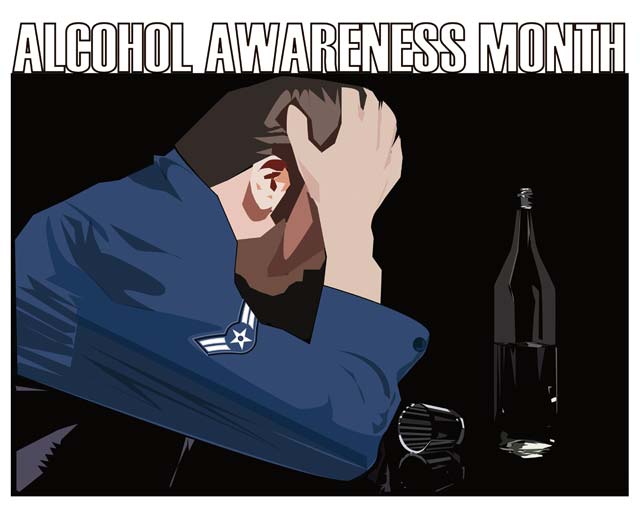by Capt. Crystal McLeod
Ramstein ADAPT program manager

April is Alcohol Awareness Month and this year’s goal is to educate communities on the use and misuse of alcohol along with resources and services available for those needing help.
April is Alcohol Awareness Month and this year’s goal is to educate communities on the use and misuse of alcohol along with resources and services available for those needing help.
What is secondhand drinking? It is a term that describes the impact of someone who is on the receiving end of behaviors associated with alcohol use.
Some of these behaviors can include:
• Physical fights
• Verbal, physical or emotional abuse, neglect or bullying
• Driving while impaired, riding in a car with an impaired driver, getting a DUI
• Unprotected, unwanted or unplanned sex or sexual assault
• Problems at work or school
• Domestic violence
Some risk factors associated with the individual or individuals being exposed are:
• Early use of alcohol in children and young adults
• Negative social environments associated with alcohol use
• Mental illness
• Childhood trauma
• Abuse/neglect
People who are affected by secondhand drinking are spouses, children, parents and other loved ones.
An example of secondhand drinking is when a wife repeatedly promises to stop or cut down her drinking, but when confronted by her husband, she starts offensive attacks on something that he has or has not done, which then causes him to go into crazy and convoluted arguments to defend himself.
The effects on children could be devastating as well. When something happens that keeps a child up late, such as arguing and fighting in the home, and the child gets to school the next day and can’t concentrate during class and is embarrassed by a classmate’s snicker when the teacher asks him a question he cannot answer, he gets upset and punches the classmate in the face.
As you can see, secondhand drinking has a ripple effect creating memories and emotional damage that last a lifetime. It’s real and can forever change a person’s life if it’s not recognized or goes untreated.
The emotional consequences to family members and friends can be alarming.
The repetitive activation of the brain and the body’s instinctive fight-or-flight response can cause lots of stress on the body as family members or loved ones try to cope, control, minimize, deny, protect themselves and others when faced with a loved one’s chronic substance misuse with little or no understanding of the condition or disease. The more risk factors a person has the more likely they have a problem with alcohol abuse or alcoholism.
For more on alcoholism and services available, call the Ramstein Alcohol and Drug Abuse Prevention and Treatment Program at 479-2390 or 06371-46-2390.


